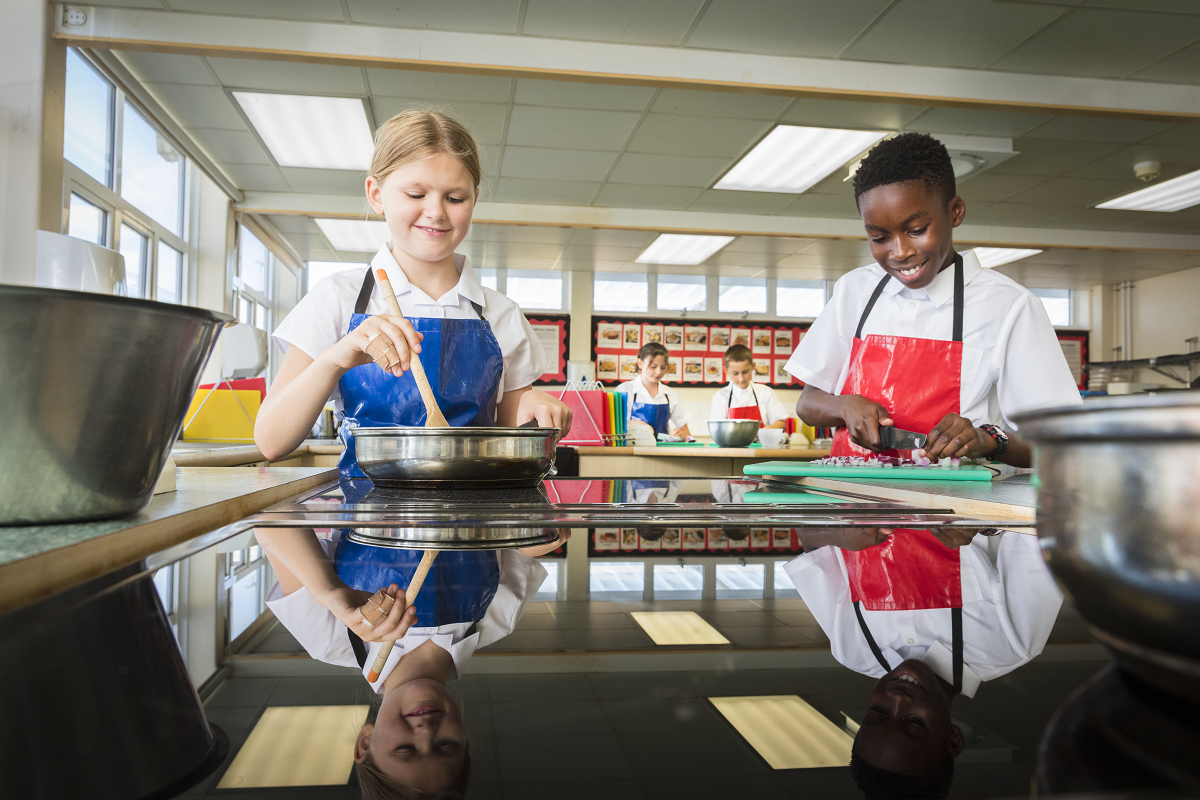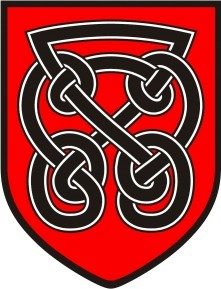
The Design and Technology Department at The Priory School aims to provide an exciting, broad and creative curriculum to all our students. Projects aim to highlight the importance of the user/customer/client, moral and social factors and environmental issues in relation to the design industry. All projects are designed to cover a wide range of skills and materials. The department in well-equipped with 3 full workshops, a food preparation room, a dedicated Computing suite, a laser cutter and a 3D printer.
Curriculum
Key Stage 3
Students study Design & Technology until the end of KS3 (Years 7 and 9 for 3 hours per fortnight; Year 8 for 4 hours per fortnight), on three different technology rotations (1 per term); Resistant Materials, Graphic Design and Food & Nutrition.
Year 7
The Creative Mirror Project: Students are encouraged to use creativity and inspiration to design a mirror whilst clearly communicating their ideas. They are introduced to working with new materials and tools to realise their designs.
Superhero Money Box: A fun and creative way of introducing students to Key Stage 3 Graphics. Students learn all about technical drawing, designing, computer aided design and evaluating. They also use basic model making and workshop skills to make a money box out of cardboard.
Food: Students learn about basic skills and healthy eating in the first year of Food Preparation and Nutrition, including the importance of eating “5 a Day”. They also learn personal and kitchen hygiene, food seasonality, how to use the equipment, hand washing, washing up, knife skills as well as shopping on a budget.
Year 8
LED Lamp: This Product Design-based project focuses on a variety of skills built on creativity and innovation. Students learn about design layout and ergonomics using a variety of materials including plastic, MDF and electronics to make a professional quality product. Students are also introduced to standardised components, industrial processes and manufacturing in quantities.
Headphone Wrap: Students learn the meaning of Computer Aided Design (CAD) and how it is used in industry. They learn how to generate exciting new ideas, communicate effectively and apply new knowledge. In this project the importance of the user is emphasised during the entire design and make process. Students learn how to use computer software to draw an accurate 3D image of their design.
Food: In Year 8 Food Preparation and Nutrition students expand their knowledge about healthy eating. In addition to this students will also be introduced to Food Science and they will look in more detail at how cooking actually works.
Year 9
Jewellery Project: Students are encouraged to apply all previous skills, knowledge and creativity to successfully research, design and make an innovative lighting product with the user/customer/client in mind. Students conduct a product analysis on an existing product before designing and developing a final product. Planning and problem solving skills are developed before and during the making of their final product.
Graphics Branding: In this project students create their very own brand, designing and making CD covers, packaging, T-shirts and badges, with a professional software Illustrator. Students learn how to design and develop a logo by using various sources of visual stimuli. They are introduced to branding and how to launch a successful brand or idea. Students learn about the following areas: logos, target markets, iconic products, typography and colour awareness.
Food: In Year 9 students continue their learning about diet and health, specifically focusing on the nutritional needs at different life stages. Students also consolidate their learning on macro and micronutrients. Student learn about food science through practical investigation, research and analysis. Students create higher level food products including: mini quiches and Chelsea buns. Towards the end of the rotation students have an opportunity to experience GCSE Food preparation and nutrition by taking part in a mini NEA project in which they have the opportunity to research a country of their choice and choose which dishes they would like to cook.
Key Stage 4
Design & Technology
This course brings together elements of product design, resistant materials and graphics.
This qualification is linear. Linear means that students will sit all their exams and submit all their non-exam assessments at the end of the course.
Design & Technology is assessed in two ways. Firstly a two-hour written exam, which makes up 50% of a student’s final GCSE. The exam is made up of three sections:
· Section A – Core technical principles (20%) A mixture of multiple choice and short answer questions assessing a breadth of technical knowledge and understanding.
· Section B – Specialist technical principles (30%) Several short answer questions (2–5 marks) and one extended response to assess a more in-depth knowledge of technical principles.
· Section C – Designing and making principles (50%) A mixture of short answer and extended response questions.
The second assessment is the Non-Examined Assessment (NEA). This is a substantial design and make project with the following assessment criteria:
· Identifying and investigating design possibilities
· Producing a design brief and specification
· Generating design ideas
· Developing design ideas
· Realising design ideas
· Analysing & evaluating
Students will need to produce a prototype and a portfolio of evidence.
Lessons will be taught through a mixture of both theory and practical elements depending on the place in the specification.
Food Preparation and Nutrition
Students will be taught the science behind what makes food tasty in a new GCSE in Food Preparation and Nutrition. The qualification will build on existing skills from KS3 and equip the students with a range of kitchen skills and an in-depth understanding of nutrition. Students work from a design brief using accurate research to plan, prepare and cook dishes to fulfil the brief. Learning outcomes of this course include having a detailed understanding of working to a design brief, meeting a design specification, understanding the functions of food, and understanding nutrients and a healthy diet and the importance of good communication.
Food preparation skills are integrated into five core topics:
- Food, nutrition and health
- Food science
- Food safety
- Food choice
- Food provenance
- Assessment for Food Preparation and Nutrition:
50% written exam
50% coursework (food investigation and food preparation tasks)
Key Stage 5
A Level Product Design
AQA has refreshed and enhanced the content of our new A Level course. This course is modern and relevant, so students can learn about contemporary technologies, materials and processes, as well as established practices.
The new qualification places greater emphasis on understanding and applying iterative design processes. Students will use their creativity and imagination to design and make prototypes that solve real and relevant problems, considering their own and others’ needs, wants and values.
Enrichment
Rotary Technology Tournament for KS3, KS4 and KS5 annual event and 100% Design exhibition for KS5 visit.
Careers
Have you ever thought about a career in Design and Technology? There are a vast range of careers that Design and Technology can lead to such as Graphic Design, Product Design, Food Science, Construction and many more. This video explains the importance of Design and Technology as a subject in the world today.
Staff
- Mrs Rachel Blacklaws – Head of Department
- Mr Jason Allenby – 2nd in Department
- Mrs Fiona Flather – Teacher of Design & Technology
- Mr Jack Maydom – Teacher of Design & Technology, Physical Education; Assistant Head of Year 8
- Mrs Emma Boniface – Teacher of Design & Technology
- Ms Frances McDougall – Food Technician
- Mr Marc Carter – D&T Technician
Links
www.technologystudent.com – Great for KS3 & KS4
http://www.youtube.com/watch?v=B5NiTN0chj0&list=FL7gRzaNbUS8-r0-BcD2eqTg&index=8&feature=plpp_video – Sustainability Video
http://www.youtube.com/watch?v=AUQffcSt25M – T-Shirt Logo Video
http://www.youtube.com/watch?feature=player_embedded&v=x3jTSB2ez-g – T-Shirt Logo Video
http://cyop.potato.org.uk – Year 9 Food
http://www.foodafactoflife.org.uk – Year 9 Food
https://www.youtube.com/watch?v=xrVCkEoY_8M – How to Solder Wire
